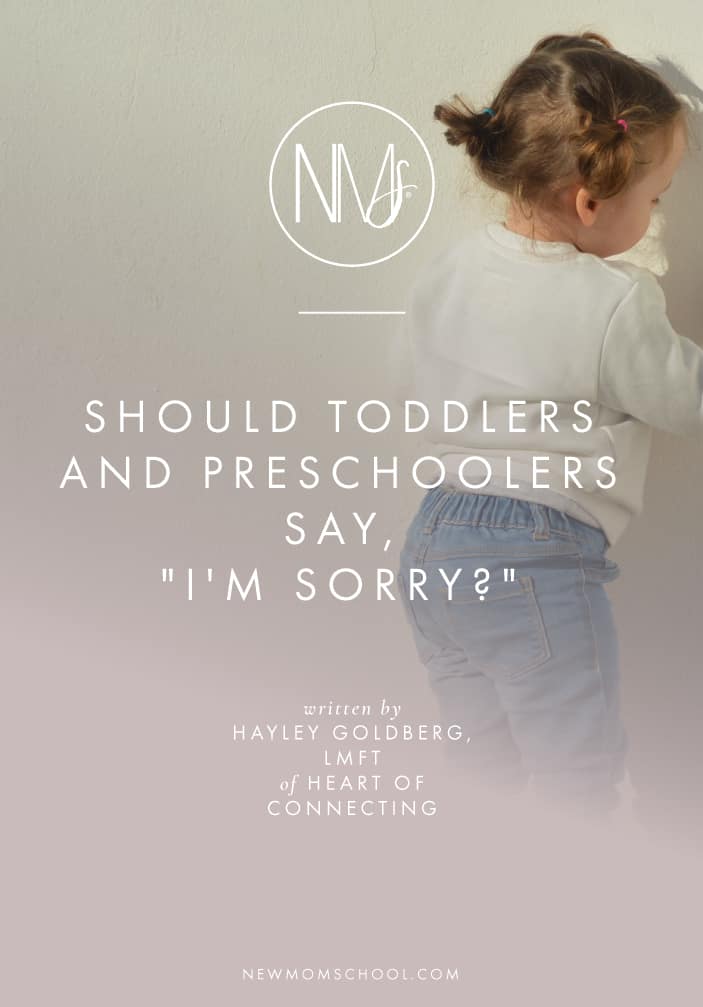Written by Hayley Goldberg of Heart of Connecting
Original Article HERE
As parents it is important to us that our children have good manners, are sensitive to, and care about the feelings of others. We want children to take responsibility for their actions, and we know that if our children are going to have friends, be socially happy and successful, they will need to make amends when someone has been wronged. No parent wants their child to be rejected and isolated and so we begin teaching our kids pro social behaviors, including saying sorry, from an early age.
To truly apologize requires empathy. Empathy is a skill that plays a significant role in having nurturing, compassionate and caring relationships. Empathy is when you understand how someone else is feeling because you can imagine what it is like to be them or stand in their shoes. For children, empathy develops in its own way, at its own time, and is one of the last social skills to develop. This explains why young children have a hard time understanding the viewpoint of others. When we command young children to say sorry, when developmentally they struggle to understand what others are feeling, children cannot genuinely own the words they are saying.
Does that mean we should let young children off the hook and allow them to get away with such behaviors as hitting, pushing, biting or hurting others? Absolutely not! It also doesn’t mean we should have our kids give the obligatory “I’m sorry” when we know they don’t really mean it. What these behaviors in young children tell us is that we have an opportunity for connection with our kids while teaching them to behave appropriately at the same time.
Here are 5 steps you can take to begin developing empathy skills and help young children take responsibility for their actions:
- Children learn from us how to repair relationships and so we need to model for children the behavior we want them to emulate. Let your children hear you apologize for mistakes you make or things you feel genuinely sorry about. Children learn by watching and copying what adults do. If you are at a playgroup and your child shoves another child and makes them cry, as the parent you could apologize to the child and the child’s parent. Chances are you are genuinely sorry. This is great role modelling for your own child when they see you apologize with genuine caring. After apologizing remove your child from the situation and find a quiet place to talk.
- Don’t shame or punish children for their mistake. Help children acknowledge the effects of their actions, and help them figure out how to make changes, focusing rather on “making it right” with the other person. Since young children best learn through action, children can help with getting an ice pack for the child they hurt or helping put a band -aid on the other person. Involving children in an act of helping or kindness goes a long way in teaching empathy.
- Focus on the future. Instead of forcing children to say sorry, focus their commitment to do something differently in the future. “Can you let your friend know that you won’t take his bike without asking again.”
- Help young children identify their feelings. Give feelings a name. Labeling feelings for toddlers and preschoolers is a first step toward them eventually being able to name and process their feelings on their own. You could say, “It looked like you were really angry when you scratched Maddie.” Learning positive ways to express emotions is an important life lesson for children. For toddlers and preschoolers this learning takes lots of repetition.
- When everyone is calm, talk to your child in a calm tone, in a quiet area away from others. Help make the connection of how the other child felt as a result of their behavior. “When you scratched Maddie, she was hurt and she felt sad.” For younger children, we need to provide them with the information. Young children don’t always know the words they need to make sense of the emotions they or others feel. This is part of our teaching.



